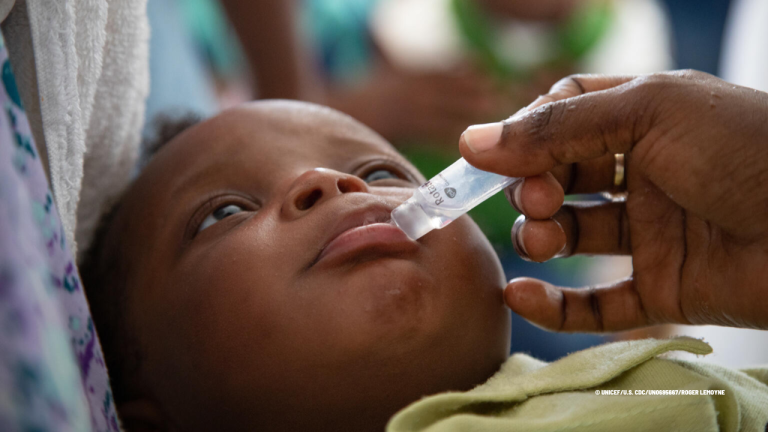…..Pediatric pulmonologists says increased exclusive breastfeeding panacea to cold in children
An expert in Pediatric Pulmonology, Prof. Adegoke Falade, has recommended increased exclusive breastfeeding for infants as part of treatment of cold in children.
Falade, of the University of Ibadan, made the recommendation in an interview on Wednesday in Ibadan.
Falade, also a honorary Consultant Pediatrician, University College Hospital (UCH), Ibadan, highlighted other treatments to include cleaning of nasal discharge in infants and in older children and administering home remedy for cough.
This, he said could comprise weak tea plus lime or palm oil mixed with sugar, given with a teaspoon thrice a day.
“If the cough is associated with fast breathing and/or difficulty in breathing, help should be sought at a primary health care centre or clinics to evaluate for pneumonia, which is a dangerous illness,” he said.
According to the medical expert remarks, common cold, also known as acute coryza, is very common in children, associated with low-grade fever, sneezing, nasal discharge and cough.
“In the course of the illness, there may blockage of the nasal airway. There is discomfort because of the nasal discharge and nasal blockage.
“Within seven days, the illness must resolve. Sometime however, complications, such as pneumonia, infection of the throat and ear drums may arise,” he said.
Also, Abdul-Wahab Johnson, a professor of Paediatrics/Consultant Paediatrician and Paediatric Pulmonologist, University of Ilorin and University of Ilorin Teaching Hospital, Ilorin, said that common cold remained the commonest disease in humans of all races, regardless of age.
Johnson emphasised that Respiratory Syncytial Virus (RSV) was globally acknowledged as a common cause of cold in children, among other identified factors.
According to him, common cold has been shown to be a common, if not the commonest, provocateur of acute episodes of asthmatic attacks in children, with a first degree family history of allergic diseases.
Johnson recommended some treatment measures, including provision of additional micronutrients like zinc, vitamin A and vitamin C.
“Though, administration of prophylactic antibiotics to prevent potentially serious bacterial complications is a common practice, such does not usually shorten the duration of the symptoms.
“Except there is a bacterial complication at the time of presentation, it definitely does not prevent the advent of bacterial complications.
“Besides, the practice is likely to encourage the development of resistance to commonly used antibiotics, which would have been otherwise useful, if and when appropriately needed,” he said.
For prevention, the medical practitioner said avoiding the avoidable risk factors like excessively cold environment as well as less frequent contacts with adults and older children with cold symptoms would be needful.
He further stated that provision of avenues for adequate household ventilation and avoiding house overcrowding were also necessary.
Johnson noted that frequent hand washing with soap and use of hand sanitisers, as widely recommended during the COVID-19 pandemic, would reduce the risk of virus transmission among household members.
“Similarly, avoiding touching the surface of the mouth (mucosal), eyes and nostrils by an affected individual could also help in reducing the spread of the infection.
“Teaching and encouraging appropriate healthy coughing and sneezing etiquettes, such as covering the mouth and nostrils with the back of the hand or a bent elbow, can also reduce the spread of virus-contaminated droplets from an affected person.
“Breastfeeding infants, at least, for the first six months and ensuring that they and children under five year are appropriately protected against the common vaccine preventable diseases are vital,” he said.


